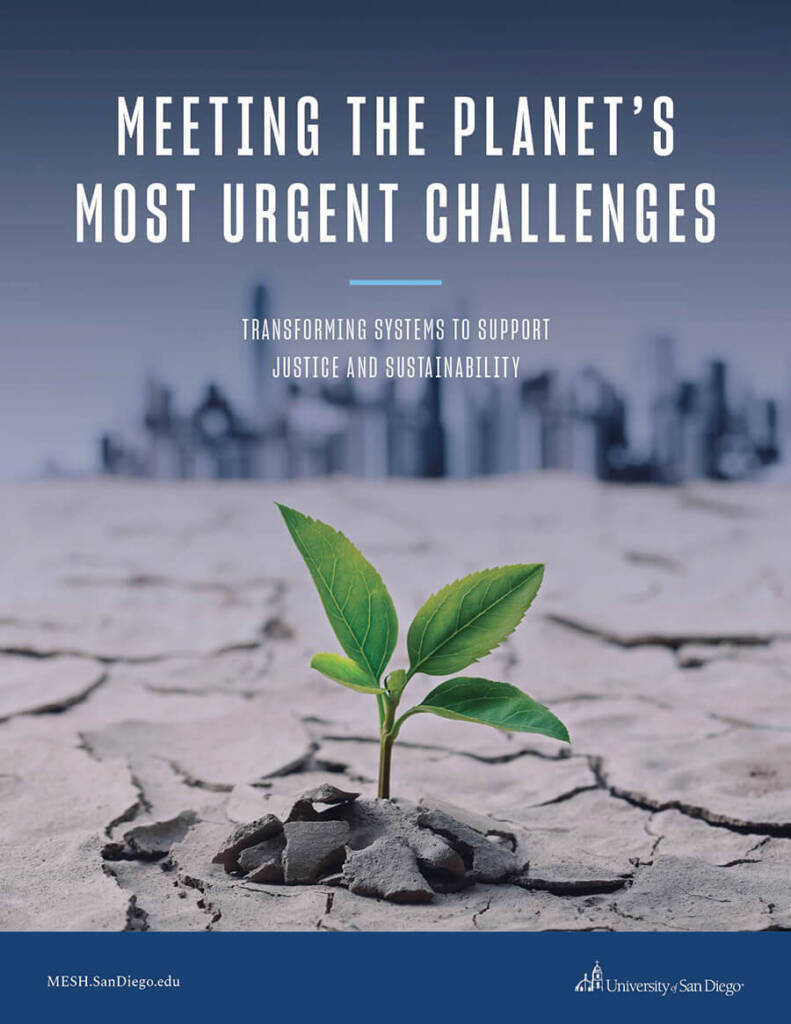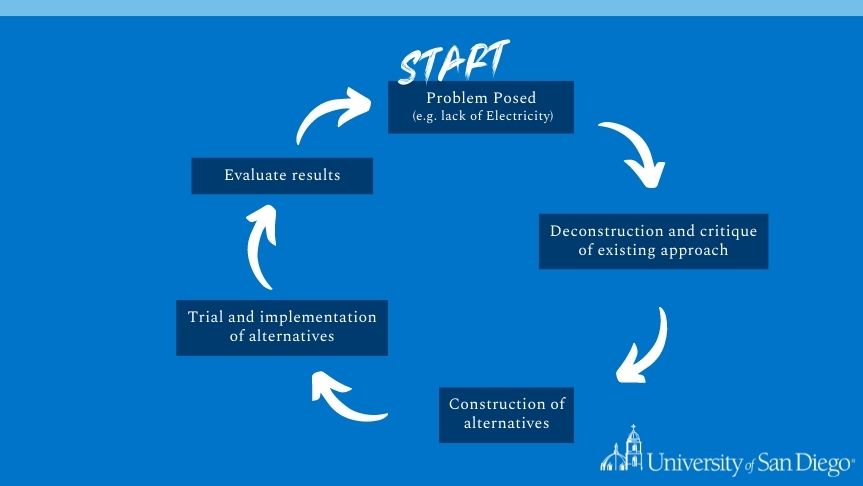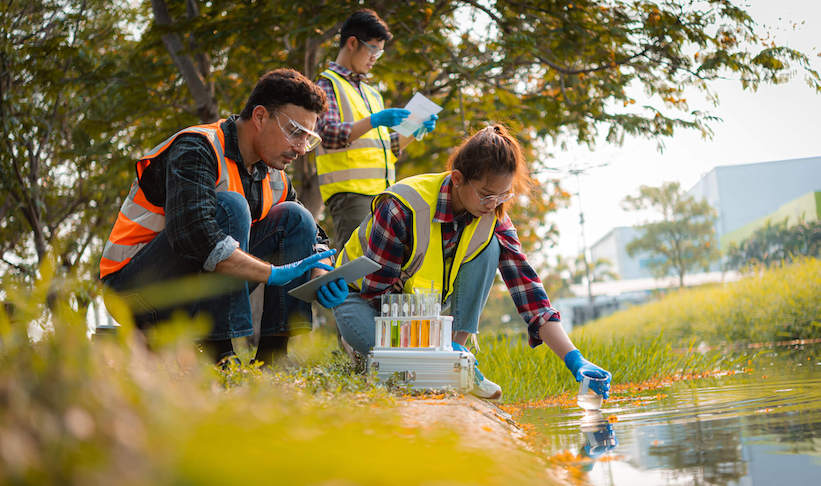The great majority of people — 9 out of 10 people, according to a notable Harvard Business Review survey — would prefer to devote their lives to work that they consider meaningful. Today, as our world grapples with interconnected global challenges related to health, poverty, hunger, inequity, natural disasters, humanitarian crises, pandemics and climate change, there is a spirit of fresh innovation around how to make a positive impact. For those who are motivated to work in a career that helps make the world a better place, then exploring professional opportunities that connect to social justice is a great place to start.
That’s because social justice touches on many areas that call to people who are seeking meaningful career options. These include roles that help address:
- Access to affordable health care (healthier humans)
- The environment (healthier planet)
- Widespread hunger and poverty
- Racial and gender equality
- And much more
For those seeking to integrate their compassion for the planet and its people into their work life, it can be worth exploring the different career opportunities in social justice. Before you get started down a career path, however, consider the different undergraduate and graduate degree programs that will align your skills, knowledge and experience with specific social justice-adjacent careers.
What Is Social Justice?
The definition of social justice tends to vary depending on who is defining it. The concept is often described as a goal that humanity should strive for, while understanding that it can never be truly and fully achieved. According to the United Nations: “Social justice may be broadly understood as the fair and compassionate distribution of the fruits of economic growth.”
Other definitions of social justice include:
- “Social justice is a communal effort dedicated to creating and sustaining a fair and equal society in which each person and all groups are valued and affirmed.” (John Lewis Institute for Social Justice)
- “Equal rights. Equal opportunity. Equal treatment. With these core values in mind, we can define the phrase as such: Social justice means equal rights and equitable opportunities for all.” (The San Diego Foundation)
- “Simply put, social justice refers to the belief that every person, regardless of age, gender, race, religion, or socioeconomic status, deserves equal access to all the rights and opportunities enjoyed by others.” (STEPS: Student Training & Education in Public Service)
In a report titled “Social Justice in an Open World,” the UN also observes that because progress in the modern world is often equated with growth, “It is also essential to ensure that growth is sustainable, that the integrity of the natural environment is respected, that the use of non-renewable resources is rationalized, and that future generations are able to enjoy a beautiful and hospitable earth.”
Because positive change necessarily involves significant transitions from the status quo, social justice is focused on ensuring “just transitions.” For example: If a refinery is being closed to transition to a cleaner energy source, many people will likely be left without a job and those who depend on the economy that grew up around the refinery will likely suffer an impact. In this hypothetical, such variables must be taken into account to ensure a “just transition” to the healthier energy source.
How to Get Involved with Social Justice
There are many ways to support initiatives that connect to social justice in our everyday lives, and many notable examples of causes related to social justice.
Causes related to social justice
- Racial equality
- LGBTQ+ rights
- Child welfare
- Affordable health care
- Immigration/refugee advocacy
- Climate change
- Sustainable development
- Anti-poverty / hunger relief / clean water
- Human rights
- Population health
- Underdeveloped communities/countries
Ways to support social justice
- Examining our own beliefs and habits, and being open to personal growth
- Educating ourselves about social justice issues we’re most passionate about
- Connecting with local organizations and advocacy groups (such as USD’s ExSJ program)
- Taking positive action (ex. writing letters to elected leaders)
- Participating in social activism, such as by attending demonstrations
- Volunteering (see VolunteerMatch)
- Donating assets, time or in-kind services (see Charity Navigator)
- Getting involved in politics to advocate for important causes
- Investing responsibly
Helpful Degrees for 17 Notable Social Justice Careers
Many people today are seeking ways to support the principles of and causes related to social justice in their professional lives. Here is a quick look at a range of careers and fields that connect to social justice, plus the types of degrees that can help provide the needed educational and credentialing background.
Homelessness/Housing Insecurity – In America alone, hundreds of thousands of individuals report struggling with homelessness and housing insecurity. Working in advocacy, resource management, temporary housing or transitional services can make a difference.
Helpful degrees: social work, human services (undergrad and graduate).
Poverty/Income Inequality – The pandemic did not help matters for those living below the poverty line and the striking wealth gap between the super-wealthy and the middle and lower classes is only said to be growing.
Helpful degrees: counseling – since behavioral, emotional, mental and social challenges often connect to socioeconomic status – and urban planning (undergrad and graduate).
Discrimination and Racism – Much as we might wish otherwise, discrimination and racism still have a profoundly destabilizing effect in our world. Therefore, strong advocacy for civil rights and human rights is always needed.
Helpful degrees: criminal justice, public administration (undergrad and graduate).
LGBTQ+ Rights – The fact that LGBTQ+ people often experience significantly higher levels of harassment, bullying and violence means that impassioned advocacy is always needed.
Helpful degrees: counseling (undergrad and graduate), psychology (graduate).
Domestic Violence – One out of every four women (and one out of every seven men) reportedly experience severe physical violence from an intimate partner at some point.
Helpful degrees: mental health counseling, family/marriage counseling, gender studies (undergrad and graduate).
Social Services – Social service workers can make a difference both in office/administrative and field-related roles, often motivated by a passion for helping others directly.
Helpful degrees: social service degree options range from associate and bachelor’s to master’s and doctoral.
Education/Teaching – It’s not surprising to learn that those who have more education tend to live longer, more successful lives. Therefore, working to ensure equal access to quality education is a vitally important way to promote social justice.
Helpful degrees: education major or subject expert (undergraduate); Master of Arts in Teaching, Master of Education (graduate).
Climate Change – Since climate change encompasses many different fields, there are numerous opportunities to make a difference; for example, in engineering, governmental, corporate or nonprofit settings.
Helpful degrees: Engineering, emergency management, forestry (undergrad and graduate).
Health Care – Access to quality, affordable health care continues to be a massive social justice issue both in America and around the globe. An estimated half of the world’s population lacks access to essential health services and lack of insurance forces countless people into medical bankruptcy.
Helpful degrees: health services, health administration, nursing, public health (undergrad and graduate).
Politics – Of course, politics affects our lives in countless obvious and less-evident ways, meaning there are many ways to make a potential impact (ex. policy analyst, political scientist, activist, elected official).
Helpful degrees: government (undergraduate); political science, public policy, journalism (graduate).
Nonprofit Management – From hunger and human rights advocacy organizations to social service and environmental orgs, there are thousands of nonprofits dedicated to serving causes related to social justice. Nonprofit management offers influence over fundraising, personnel, finances, marketing, messaging and core services.
Helpful degrees: nonprofit management (undergrad and graduate).
Law – Whether advocating for individuals or for issues related to the greater good that affect millions, members of the legal profession can choose to focus on areas related to social justice. Examples include public interest law, environmental law, victims’ rights, etc.
Helpful degrees: personal areas of interest (undergraduate); law school degree required (graduate).
Research – Social justice causes always need research, statistics and factual data to help make the case for positive change. Therefore, demand for skilled researchers is found at nonprofits, research institutes, academic institutions, government organizations, NGOs, etc.
Helpful degrees: bachelor’s in a field related to the cause; master’s preferred.
Communications – Whether through journalism, penning persuasive position papers or grant writing for important causes, those who possess advanced writing and communication skills have a unique ability to tell the stories of people and communities in need of help.
Helpful degrees: journalism, media and communications, liberal arts, technical writing (undergraduate).
Urban Planning – Creating healthier, more sustainable cities for all is a notable 21st century social justice goal, since urban environments are often impacted by racial and socioeconomic instability, and broken or inefficient systems.
Helpful degrees: urban planning, urban studies, architecture, environmental design (undergraduate); urban planning, public administration (graduate).
Environmental Science – Creating positive change around important environmental challenges requires expertise from a wide range of different scientific fields, including ecology, geology, meteorology, biology, chemistry, physics and engineering.
Helpful degrees: environmental science or a specific scientific discipline (undergrad and graduate).
Engineering – Many of the world’s most pressing environmental and social justice challenges (combating poverty and hunger, supplying clean water, moving to cleaner energy sources, addressing climate change, etc.) connect back to engineering in one way or another. This means skilled engineers are part of the solution.
Helpful degrees: General engineering degree or one focused on a specialty such as agricultural, environmental, chemical, mechanical, electrical, geological, industrial or civil engineering; robotics, sustainability (undergrad and graduate).
How to Find the Right Social Justice Degree Program
Hopefully, this review is helpful when it comes to aligning your personal interests, aptitudes and passions with your professional goals and aspirations. You’ll also want to consider whether an online or on-campus degree program will work better for you. For busy working professionals, an online degree program in which your academic work is completed on your schedule provides additional flexibility and work-life balance.
The enormous interconnected, complex challenges related to social justice, human health and sustainability has inspired the University of San Diego to create an innovative online master’s program. The Master of Science in Engineering for Sustainability and Health (MESH) is focused on bringing together motivated and talented problem solvers from a wide range of disciplines (engineers and non-engineers alike) in a much-needed transdisciplinary approach to confronting some of our greatest global challenges.
“The MESH program is designed for change-makers, innovators and disruptors from across all disciplines and backgrounds who are passionate about addressing the challenges that face our natural and built environments,” says Dr. Odesma Dalrymple, Associate Professor and Director of the university’s Engineering Exchange for Social Justice (ExSJ).
The ExSJ is a program within the Shiley-Marcos School of Engineering in which USD academics, students and outside professionals work collaboratively with diverse community groups to discover alternative, just solutions to sociotechnical problems. Cofounded by MESH Director and ExSJ Strategic Director, Dr Baillie, the ExSJ is based on her years of work in education development, engineering and social justice as well as research on European “science shops.” The program brings together students and faculty who are passionate about community engagement and the tenets of social and environmental justice.If you’d like to know more about either the MESH degree or USD’s ExSJ program, contact us to continue the conversation.




